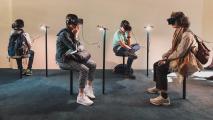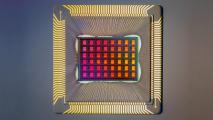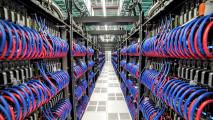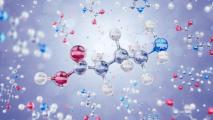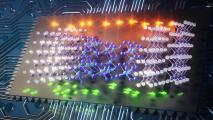
The Digital Frontier
30 years ago, the Internet opened up a new frontier, and today we’re all citizens of a digital Wild West, where how we live, work and govern is changing everyday.
More
Axolotls can regenerate their brains
Axolotls are a model organism researchers use to study a variety of topics in biology because of their regenerative abilities.
Meta can (kinda) guess what you’ve heard via your brain waves
Meta has created an AI that can tell what you’re hearing based on non-invasive brain scan measurements.
Six benefits that the metaverse offers to colleges and universities
Colleges and universities are keen to jump on the metaverse bandwagon, even before knowing what the metaverse really is.
Stanford’s new microchip could put powerful AI on your devices
A Stanford-led team has developed a new microchip that could let us run advanced AI programs directly on our devices.
New algorithm aces university math course questions
Researchers use machine learning to automatically solve, explain, and generate university-level math problems at a human level.
Inside the crypto black markets of Argentina
Argentina’s black market for cash is embracing crypto — but it’s not what crypto proponents expected.
Transhumanism: Savior of humanity or false prophecy?
While many of the technologies upon which transhumanists base their dream are real and world-changing, they have major limitations.
How natural “short sleepers” thrive on 4 hours of sleep per night
Natural “short sleepers” thrive on only four to six hours of sleep per night. Could their genetics explain why?
This smart mattress will help you fall asleep fast
UT Austin engineers have developed a smart mattress that manipulates a person’s body temperature to help them fall asleep fast.
Engineers build LEGO-like artificial intelligence chip
Engineers have created an AI chip with alternating layers of sensing and processing elements that can communicate with each other.
Wearable tech: eating and playing our way to a longer lifespan
Wearable devices can detect the specific molecules in food and our body’s response to it, allowing us to make better dietary decisions.
How to be a techno-optimist
Technology will not save the world, and it is inherently neither good nor bad. But, when tech is coupled to human virtue, good will prevail.
Apple Watch now approved to track Parkinson’s symptoms
Apple Watch motion data will now be incorporated into Rune Labs’ StrivePD app, which tracks Parkinson’s symptoms.
Unreal Engine may power the metaverse
Epic’s popular Unreal Engine is on its fifth iteration, and the tools it contains may be especially helpful for metaverse developers.
How a volcanic eruption was forecast five months in advance
Researchers correctly forecast a volcanic eruption five months in advance by running a modeling program on a supercomputer.
US’s Frontier is the world’s first exascale supercomputer
The US Department of Energy’s Frontier system is the fastest supercomputer in the world and the first exascale computer ever.
A new treatment may cure neuropathic pain
A gene therapy tested in animals may be a safe, permanent, and non-addictive treatment for neuropathic pain in humans.
A more efficient way of urban mining gold
Researchers at the Korea Institute of Science and Technology say they have developed the world’s most efficient way of urban mining gold
Discovery of “impossible” superconductor promises 100x faster electronics
A device that gets electricity to flow through a superconductor in one direction without the use of magnets could revolutionize electronics.
Bluetooth hack breaks into cars and smart locks
Researchers in the UK have identified a vulnerability in Bluetooth-based locks, including Kwikset smart locks and Teslas.
Get inspired with the most innovative stories shaping the world around us.





